Books and Authors
In this podcast, National Books Editor Manjula Narayan tells you about books, authors and their journeys. This is a Hindustan Times production, brought to you by HT Smartcast
Using stick figures to demolish dubious politics, doublespeak and more
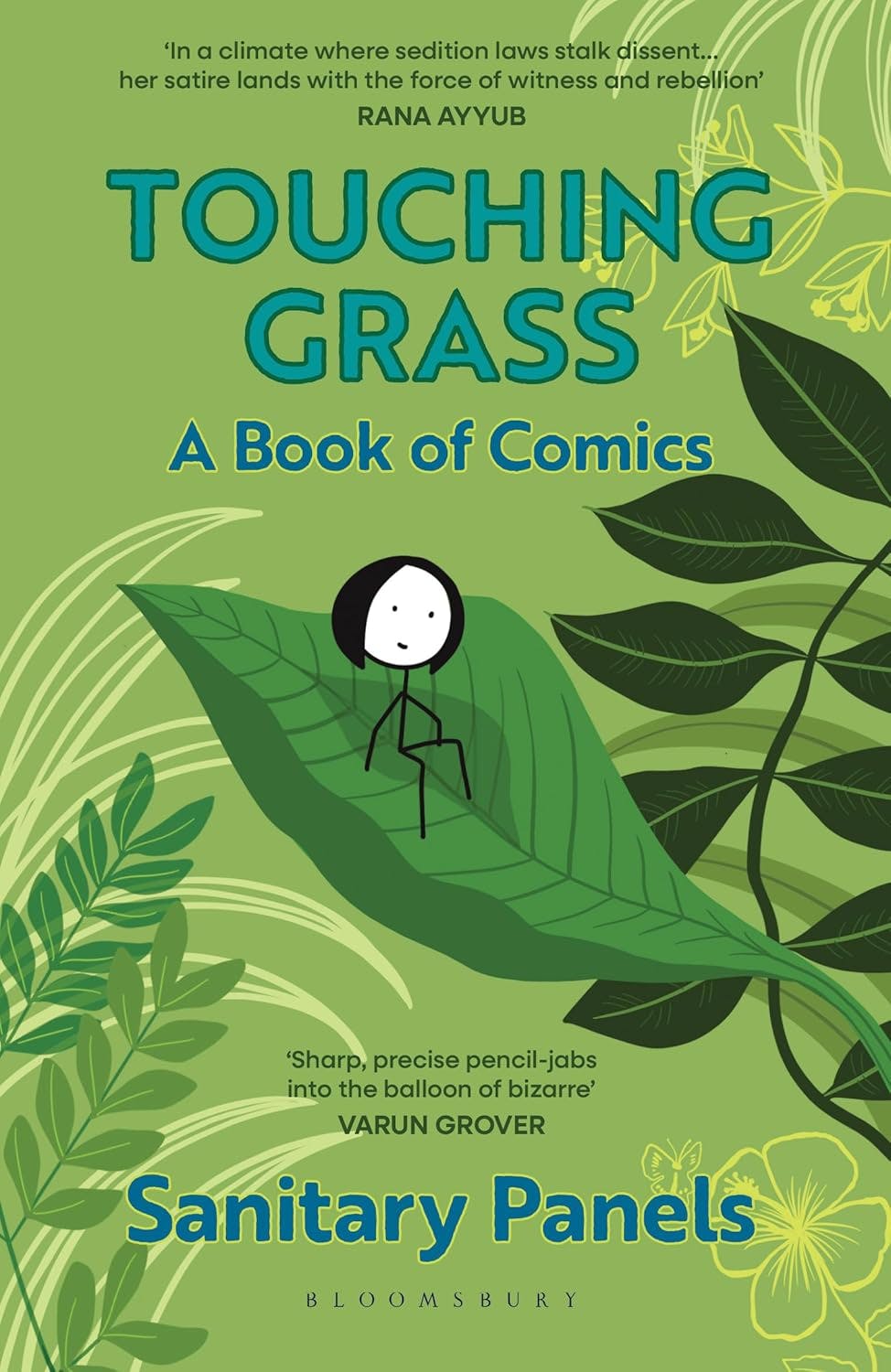
"You may try to believe that you are living in a First World country and that your reality differs from that of a poor person in your vicinity. But, at the end of the day, you will face the same existential threats that they do. Through my comics and the essays in this book, I'm trying to reach people who have the same privileges as I do; those who tend to ignore politics because it benefits them. I also wanted to make this book accessible to younger people and engage them in politics" - Rachita Taneja, author, Touching Grass...
A fight against forgetting

"Comics and literature allow us to enter worlds through our imagination; it is a medium of not-saying. We read because we want to get into the interior worlds of say, a family living in a room in Algiers. Cinema does not give that because the director decides, though TV sometimes does give that. But through comics and literature we get into the extraordinariness of the interior world." - Sarnath Banerjee, author,
Absolute Jafar, on writing a Gen X visual history, the changing nature of fatherhood, searching for jinns in Delhi, wandering the streets of Karachi, and sketching in th...
A people willing to sacrifice their lives to save nature

"The Salman Khan story reached the headlines and people thought, well, if the Bishnois can go for him so effectively, it's not safe to poach there. It has actually reduced poaching. So many Bishnoi die protecting nature; they will go unarmed against poachers. The Bishnois all share the horror of what Salman Khan did but the Lawrence Bishnoi method is completely the opposite of what the community believes should happen; they don't kill, shoot or cause threat in that way."- Martin Goodman, author, My Head for a Tree; The Extraordinary Story of the Bishnoi, the World's First Eco-Warriors...
Jewellery: Of ornamentation and adornment

"I don't think you will find anyone in India who doesn't wear a piece of jewellery [of some sort]. The Amrapali Collection is a pan Indian one. The jewels in this book are worn by pastoralists, the agricultural communities, the villagers of our country. I look at jewellery as works of art. Our villagers are no longer what they were. So it was important for me to document this art form before it vanishes and the memories of it vanishes. I think every piece of jewellery has a soul and right from birth to death, it is very much a...
Tatti tales: The things you can learn from animal poop

"Poop acts like social media for many herbivores. Besides, the droppings of whales tackle climate change, while elephant waste helps regrow forests. Wild animal poop is helping science and conservation and is also used in zootherapy" - Shweta Taneja, author, The Big Book of Wild Poop, talks to Manjula Narayan about everything from the finicky housekeeping habits of ants and how some DNA researchers who collect tiger poop say it smells like Basmati rice (!) to the cuboid droppings of wombats, the mosquito repelling properties of cow dung, and how manatee farts keep them afloat!
Learn...
From poffertjes to perad and pepper water

"I used to be very possessive of my recipes. I didn't want to give them away until a senior chef told me, "Listen, even if you give the recipe, everybody's hand is different; it will not be the same." Then, as time went on, I said, actually, some of these recipes should be preserved and if my children are not going to carry it on then at least other people in the community should know about them. Some of the things that I ate as a child have been totally forgotten. That's when I decided to start writing this b...
Reading, writing, rocking

"The thing about being a writer is that we write from a sensitive, empathetic place but we are also ruthless in that when we are grieving, we take notes of our grief. Ruskin Bond told me that the best way to write about people is just to live long enough that they all die before you. It succeeded with him; hopefully, it will succeed with me!"
- Twinkle Khanna, author,
Mrs. Funny bones Returns, talks to Manjula Narayan on the Books & Authors podcast about everything from her father's eclectic reading habits and her own love of sci...
On journeying through life

"To be alive is, in many ways, to travel; it's to journey through time. We tend to think of travelling as something that involves space or place or geography; moving from one place to another. But the other aspect of travel is just journeying through time; every human being alive journeys through it. I write about journeying through language, grief, parenting...These are universal milestones. I look at them like I look at travel. Trying to be a good traveller can be applied to these other kinds of inner landscapes too. I've travelled so much and I've lived repeatedly in...
Space operas, dystopias, and the perfect worlds of the far future

"Science and speculative fiction has always been about responding to the preoccupations of the time. I was attracted to the genre by the imaginative possibilities it offers by allowing the creation of a different world that then lets you shine a light back onto our world. While putting this anthology together we were looking for anything that could broadly fall under the category of spec fic. If could be sci-fi, magical realism, even horror. Indian readers and writers are in a dystopic frame of mind right now. There are specific forms of caste and patriarchy that show up in I...
Train through India

"Trains in India are public sites and they are sites for social exchange and its a collective identity but what the smartphone has introduced is not only the private sphere into the public one, but also a flagrant abuse of the public sphere by making it totally private! This includes the watching of shows at a loud volume and having conversations like that too."
- Amitava Kumar, author, The Social Life of Indian Trains, talks to me on the Books & Authors podcast about how train travel has changed, the people he met on his journey from Kashmir to Kany...
Irony, 'influenza', and Internet mythology in contemporary India

"I don't take the usual dystopian view of the Internet. I see it as a unit of society and use it to understand the self, the nation and politics. So, I didn't want to look at caste from the usual Dalit-Savarna perspective - a different kind of system is playing out on the Internet. Many middle castes are anxious to move up the ladder. No one can become a Brahmin but the Kshatriya space is open so many communities can claim they are Kshatriyas -- that is happening all over north India. And it's amazing how they are doing...
Jagat Murari & the FTII: art, argument and institution building in young India

"In my father's view, the making of a filmmaker wasn't just about teaching the art, craft, and science [of filmmaking], but also about allowing the filmmaker to find their own unique voice and have the confidence to be their authentic self." - Radha Chadha, author, The Maker of Filmmakers talks to Manjula Narayan about Jagat Murari, who played a key role in the emergence of the FTII, the conflicts that effected the DNA of the institution, Indian New Wave cinema of the 1970s, the tussles between proponents of arthouse and commercial films, and the many debates about the kind of...
On the multi-storeyed tower with no staircase and no entrance
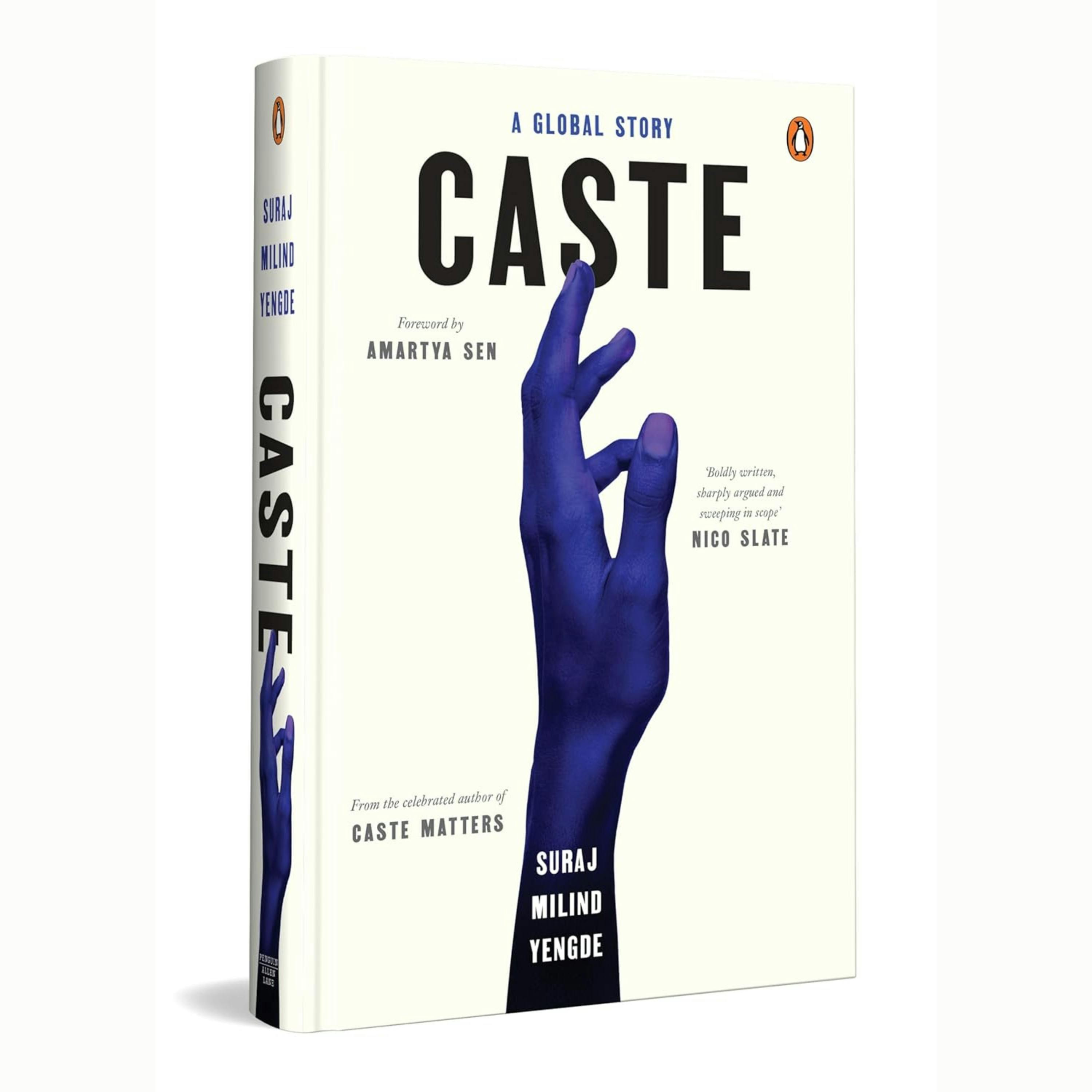
"What I wanted to say about the global dimension of caste was to look at it from the subjectivity of its victim. So Dalit as a subject takes a central place in this text, and this Dalit subjectivity travels to nearly 15 countries with us [the diaspora]. These constituents are similar but the geographical,political and local [elements] that interact with it give a new dimension to caste. Though it is a global story, it is also a very particularly localised form of caste that we see operating in different parts of the world. So, there's no blanket statement that cast...
Things that go bump...

"Some call them ghosts but I look at them more as energies that coexist with us. In many ways, like the Buddhist and other Indian philosophies say, we are on a continuum of Time and many souls can go back and forth, in some sense. While you never really get used to it (ghosts and supernatural elements), you get used to the fact that not everything is ordinary. I have very acute hearing and maybe that's why I am able to hear a frequency that's somewhat different from everyone else. It's more animal-like, perhaps. Places absorb energies at different poin...
Going with the mighty flow

"We travel on the river but the real traveller is the river, and to understand it one has to make a substantial effort" - Sanjoy Hazarika, author, River Traveller; Journeys on the Tsangpo-Brahmaputra from Tibet to the Bay of Bengal talks to Manjula Narayan about his earliest memory of seeing dolphins dance in the river in Guwahati, following the great stream through Tibet, Arunachal Pradesh, Assam and Bangladesh and the people he met along the way, the Chinese government's plans to build the massive Medog dam that will destroy Tibet's permafrost and its ecological wonders and have a devastating effe...
Fraud, fear and loathing from Jamtara to Sihanoukville

"I wanted to use fraud as a way to look at our society today. We have a fraud underworld industry that employs multitudes. If you have such a large number of people who will readily go over to the ethically grey zone -- they join to help family and then they find there's no coming back -- they are an incredible asset not just for someone running a scam in India but anyone anywhere in the world who is trying to target any demographic. The story of fraud is the story of globalisation and to my mind, more vice ve...
The ache of a phantom limb
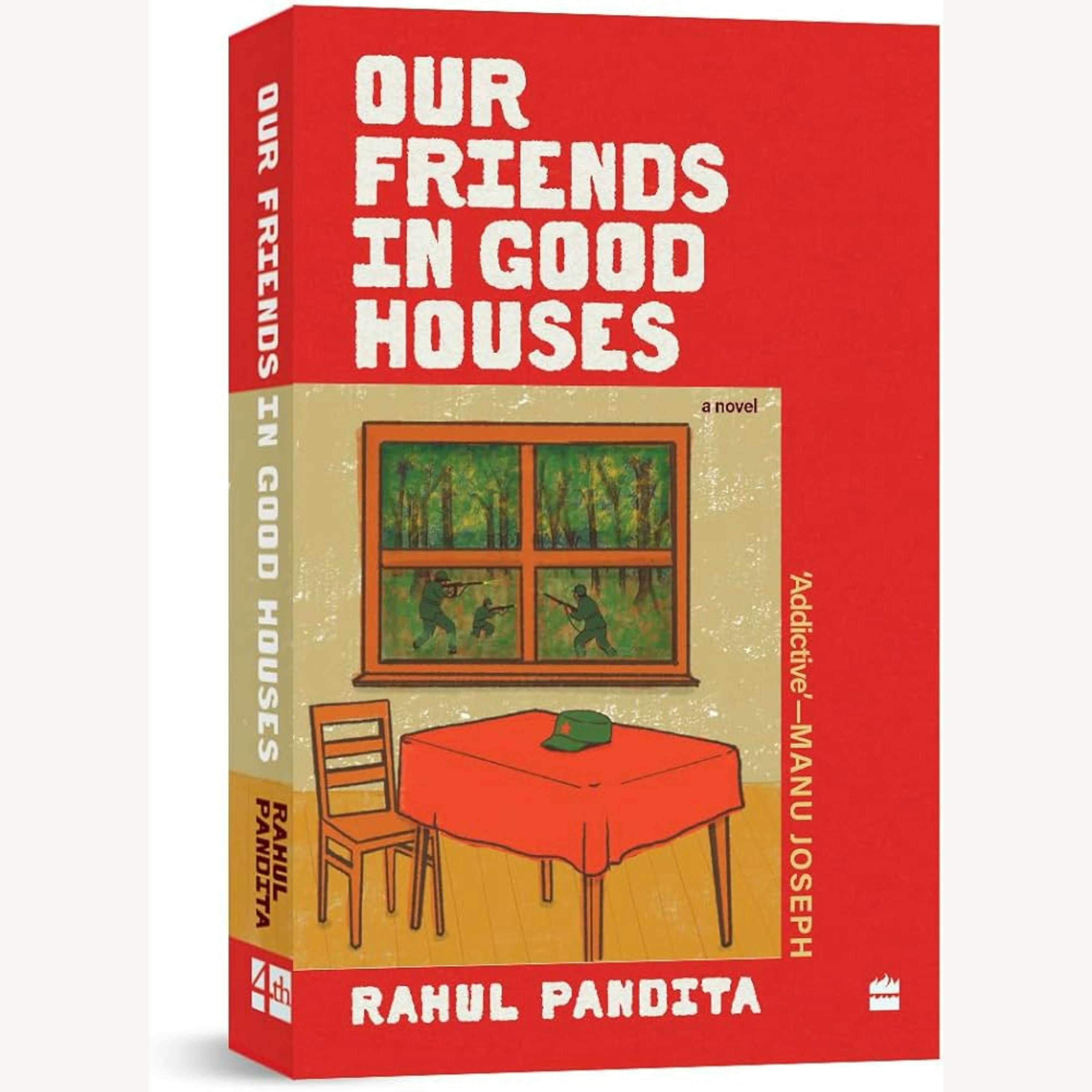
"I have my own history. I was evicted from Kashmir like many thousands of others. But when I went to Bastar and when I looked at other conflicts and what it was doing to other people, my own misery faded in comparison; because even in the worst of my situation, I had not touched the kind of pain and marginalisation I touched while travelling in the hinterland of India"
- Rahul Pandita, author, Our Friends In Good Houses, talks to Manjula Narayan about drawing from his journalistic work in his first novel, points of similarity with Neel, the b...
Grip of a godman

"In India, we don't use the word 'cult' but the photo of a godman hangs in every other home and it's all placed under the umbrella of culture. Cults go after the most vulnerable, those who are not thinking with their rational mind. That's exactly what happened with my parents. When they saw death, they gravitated towards what gave them most certainty. The majority of people going to such gurus are going for something related to their health; they are going in the hope of getting better. It could be related to disease, addiction or poverty. When you don't get ...
Stories from the Seven Sisters+1
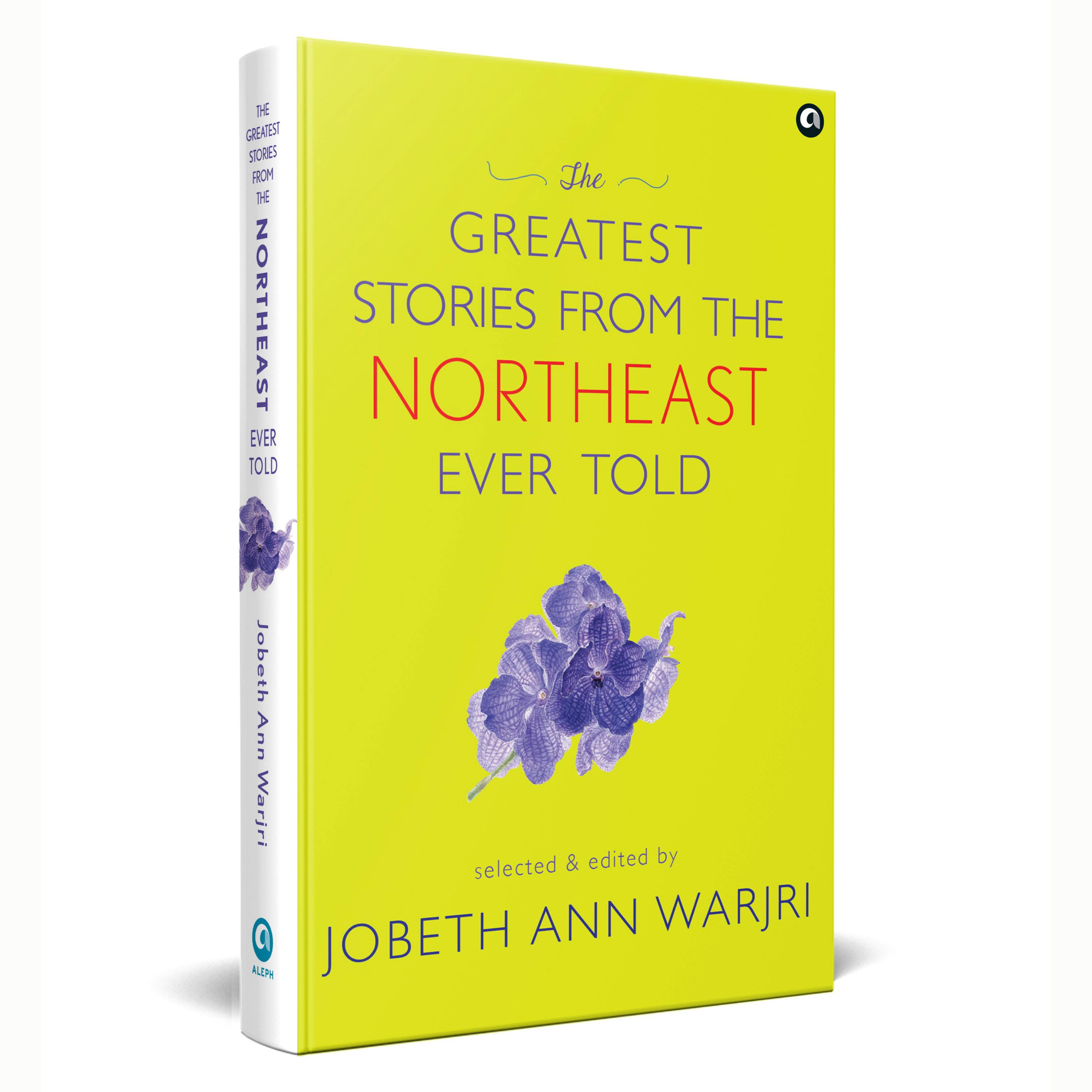
"Life is uncertain, which many of us tend to forget, and there are many things we can't explain; for those things that are inexplicable, we have stories. I was born into conflict, and growing up in Shillong in the 1990s, literature was a lifeline. It allowed us to see that, whatever the past we had inherited, there were other possibilities. Literature gives clarity to the messy parts of life, even if it doesn't have all the answers. Stories tell us to not let life wear us down. A lot of the creative nuances of the storytelling from the northeast come...
On the record

"I was picked to cover Punjab in 1984 and that's how my journey began. After that, I was sucked into the lives of people living with everyday violence. For me, it was about being a storyteller and about the sociology and the psychology of violence and why it had taken root in the different conflict zones that I've mapped.
I'm talking about conflicts that are still relevant. I've tried to trace them from where they started, how they started, and why it's still so easy, four decades later, to stoke the embers. What makes young men turn their bodi...
A desi love story: adventures with Indies

"I love travelling and I was sad to leave my dogs all the time. I had to find a way of travelling with them so Indian Railways came into the picture. Our first journey was from Nizamuddin in Delhi to Madgaon in Goa and the dogs were really well behaved. They really took to it. Tigress fell in love with the pantry! Since then we've done over 75 train journeys across India and by the end of it there was me and my husband and son and three dogs! When you travel with your dogs, you have to chart your...
Of birds, bees and educated fleas

"Humans don't really know what we are doing. Mostly, we are blundering along. A lot of animals that were once looked upon favourably and bred - like the pigeon for sending messages - are now considered as pests. It is really because of human intervention that many of these animals and birds have become abundant"- Deepa Padmanaban, author, Invisible Housemates, talks to Manjula Narayan about familiar creatures found in and around our homes like geckos, rats and ants, stuffing her book with amazing factoids about everything from incest-averseness among cockroaches to how India once exported rhesus macaques for sc...
Hymn to Hanuman
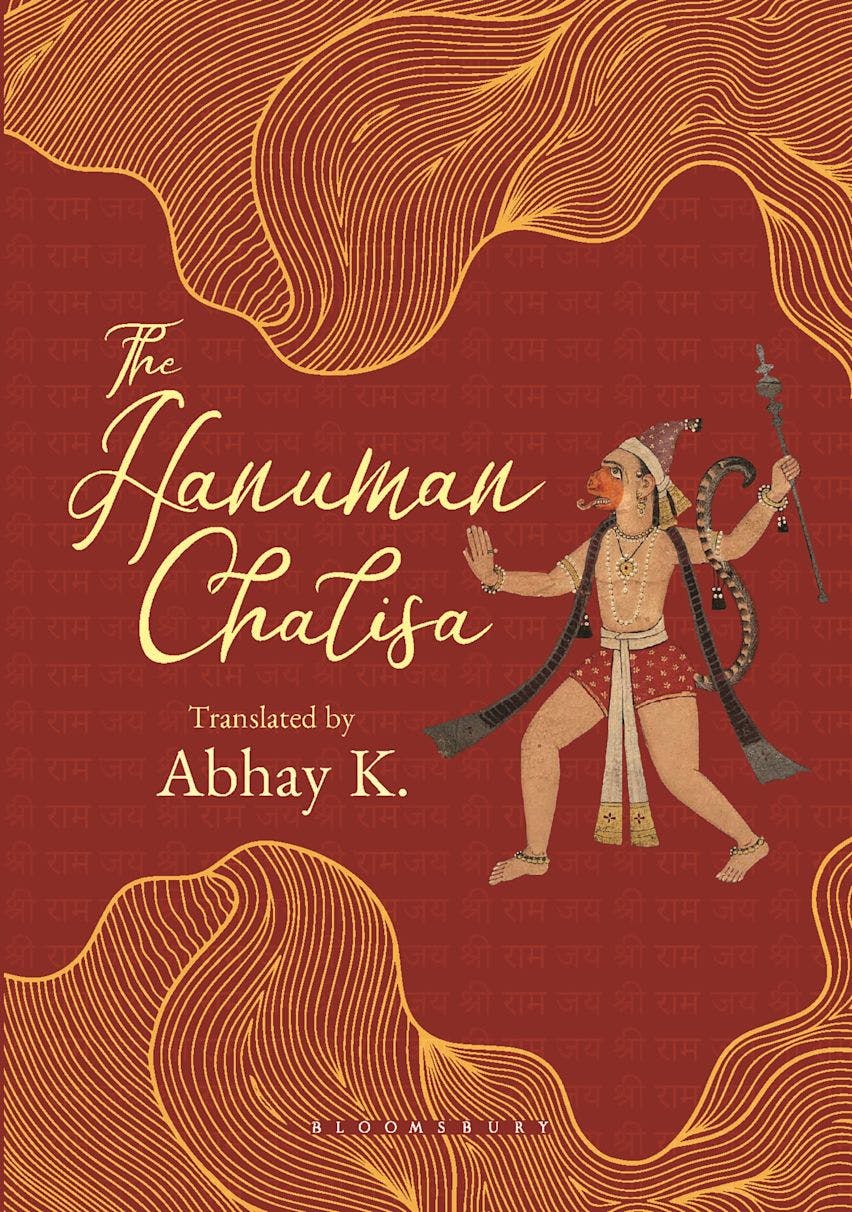
"As a child I lived in a hostel away from my parents and I was always scared so my parents told me to recite the Hanuman Chalisa. That's how the text entered my life. Recently, I met a delegation from Trinidad and Tobago who said that the one thing they desperately needed was a singable translation of Indian spiritual texts as they can no longer read the original Awadhi or Hindi. So then I decided to do a translation that was not only literary but could also be sung with music. The Hanuman Chalisa teaches us ultimate humility; to a...
Following her own beat

"When we write about music history, we are mostly talking about artists. There are also fewer biographies, autobiographies and memoirs by instrumentalists. But can the instrument itself become the protagonist to tell us our story? This has been one of my concerns as a practitioner. The ghatam is present in music across the country. It is an instrument with personality and has a central role in folk music. But, in classical music, it takes a back seat. My quest was to foreground a lot of things that are not spoken about in writing about music. This is an attempt...
Brayed of tongue

"Generally in India, the moment you see deviant behaviour, you immediately label the person 'mad'. But at least now, in some circles, the attitude towards seeking psychological help is changing. Some of these stories show how women with mental health issues become especially vulnerable. We see this so often in news articles. So these stories are right out of the society we live in." - Nabanita Sengupta and Nishi Pulugurtha, editors, Bandaged Moments; Stories of Mental Health by Women Writers from Indian Languages, talk to Manjula Narayan about putting together this collection of 26 stories from 17 Indian languages, what's lost a...
Of public chaos and amateur Indians stranded on islands of privilege

"I feel India's politics is the revenge of the poor; it's why things are the way they are. They might not look at it as a violent act but it emerges from some kind of violence against us, the middle class. Whatever politicians do, usually there is local support. So it's a peep into human nature. We were always paying a price to escape India. Now, it costs a lot of money to fully escape. Now, it seems even if you pay 200 crores for a flat, you can't escape the air! We look much poorer than we are while m...
Of Hawa Hawai and writing for his life

"People know about what sometimes happens to girls growing up in the kotha; but no one knows what happens to boys. Nobody's written about it as such so I thought I might as well do it. A kotha for tawaifs is not a place for sex work. There aren't really any pimps. If they turn up at the gates in the evening it's to usher in patrons for the song and dance, the entertainment, not for soliciting sex. The kotha is run entirely by women. As they know the world outside, they know how to protect their young ones. I...
Homage to the fruit of the gods

"In India, in the Philippines, and in the Caribbean, in places where the mango grows, it's viewed with universal adoration. We Americans are good at thinking that we have the best of everything; but not mangoes! We get these mangoes that look really good but they're more like an apple! It was a real aha! moment when we realised that we don't have the best mangoes!"
Constance L Kirker and Mary Newman, authors, Mango; A Global History talk to Manjula Narayan about everything from Harappan mango curry and the fantastically expensive Miyazaki mangoes of Japan to the...
Awe-inspiring ophiolatry
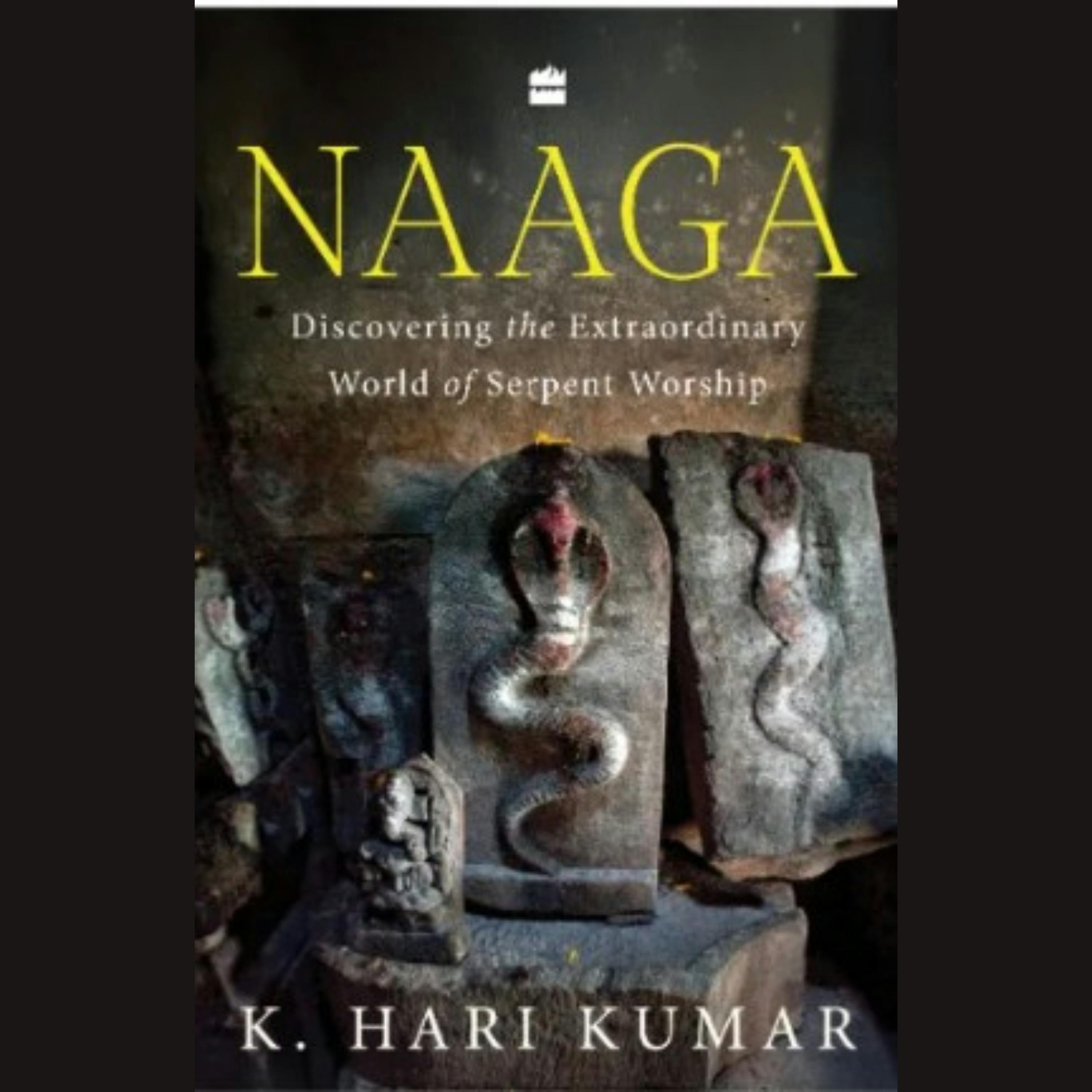
"If you look at primordial deities, they are serpents, eggs, the sun and the moon - early humans associated divinity with these things that they could see. So, serpent worship existed everywhere across the world. In India, you see a common pattern whether it's in the south, or in Uttarakhand and Kashmir and even further north in Tibet - there are elements and iconography that's similar. Scholars believe serpent worship was the original form of worship, that it was pre-Dravidian, and that the Nagas themselves were pre Aryan and pre Dravidian people. We can only speculate. Perhaps what it t...
The Hymn to Nikkal, Einstein's violin, musical space odysseys and beyond

"Music connects us with something deeper. We know there's stuff around us that science cannot explain. Consciousness, for example, is hard to explain through science alone. Music seems to connect you somehow with what this other thing is. The emotional impact that music has and how it connects people together is also very profound. Music was absolutely central to Einstein too and if he got stuck in something when he was theorising, he would go away and play his violin and that would transport him into a different world and give him ideas. He likened music to science and...
Of promises broken over centuries

Pastoral and indigenous communities in Nagarhole, Arunachal Pradesh, Chhattisgarh, Himachal, and the Van Gujjars in Uttarakhand are the ones who are protecting forests. They have a relationship with it. It's a sense of ecology that has to be looked at for solutions to the many big questions that we are grappling with at the moment. Since colonialism, the agenda has been to keep these people from being the righful owners of the land or to have a voice. Much of urban India is not in touch with the reality of the country. But people like the Van Gujjars and Tau...
Of anda halwa, taar gosht and more
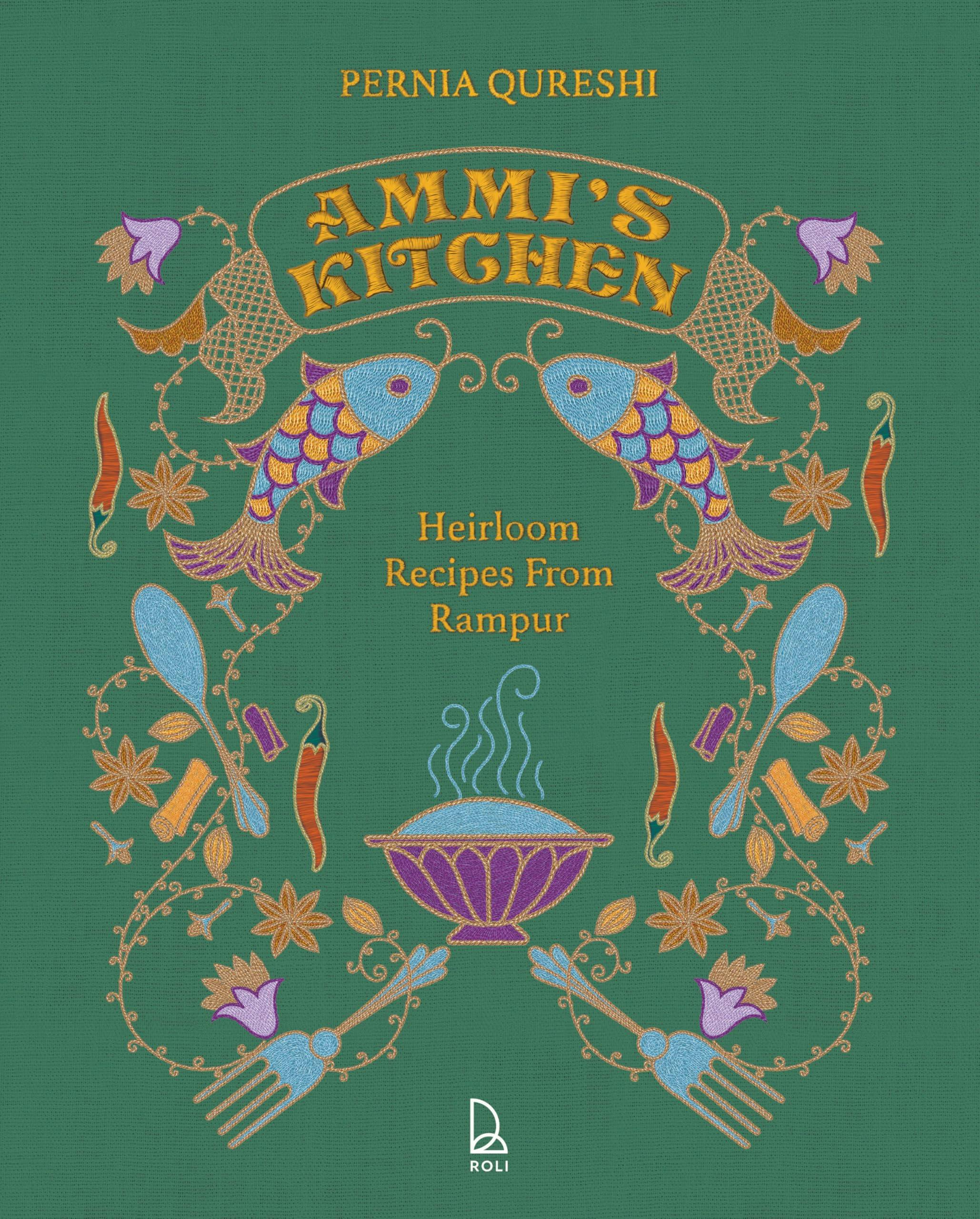
"Being able to experience the love of a grandparent is one of the most special things I've had in my life. It's the only selfless love you'll ever experience. Food was my Ammi's love language and my family formed a special relationship with food because of her. My grandmother passed away in her 90s in 2019 and one of my biggest regrets is not releasing this book in her lifetime - because she deserved that. The recipes in this book are our family recipes that we still cook to this day. We've put in the most popular dishes and the ones...
Only connect
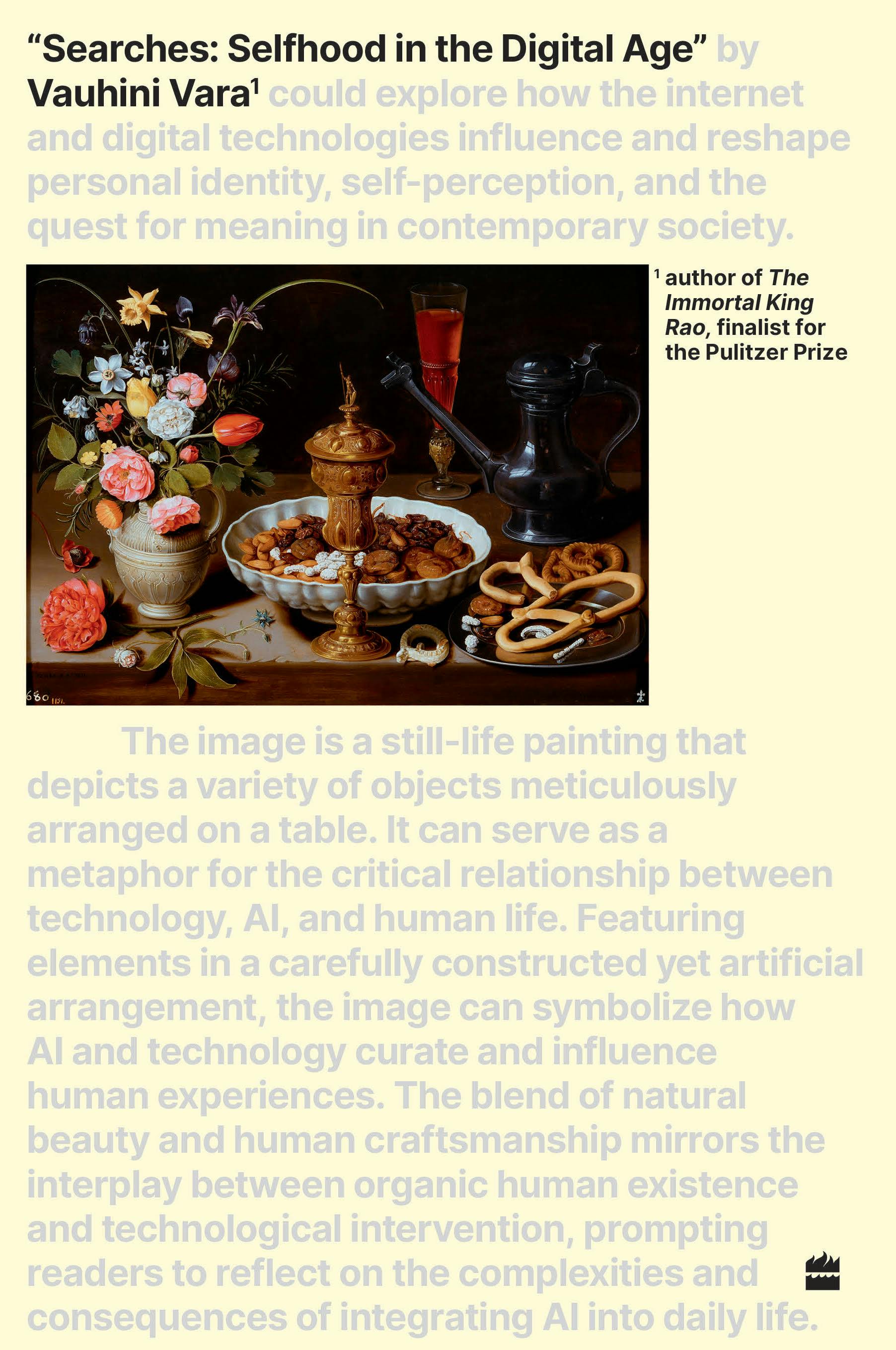
"I wanted to make the case that here is a system that we all created together that allows for our exploitation through the prism of services that we actually do get some benefit from. Everybody involved in the system gets some benefit from it - the CEOs of these companies and also us as users. I wanted to investigate that complicity" - Vauhini Vara, author, Searches: Selfhood in the Digital Age talks to Manjula Narayan about her book that uses her Google searches dating back to the early aughts, Amazon reviews, long conversations with AI, memories of her sister who...
Much food for thought
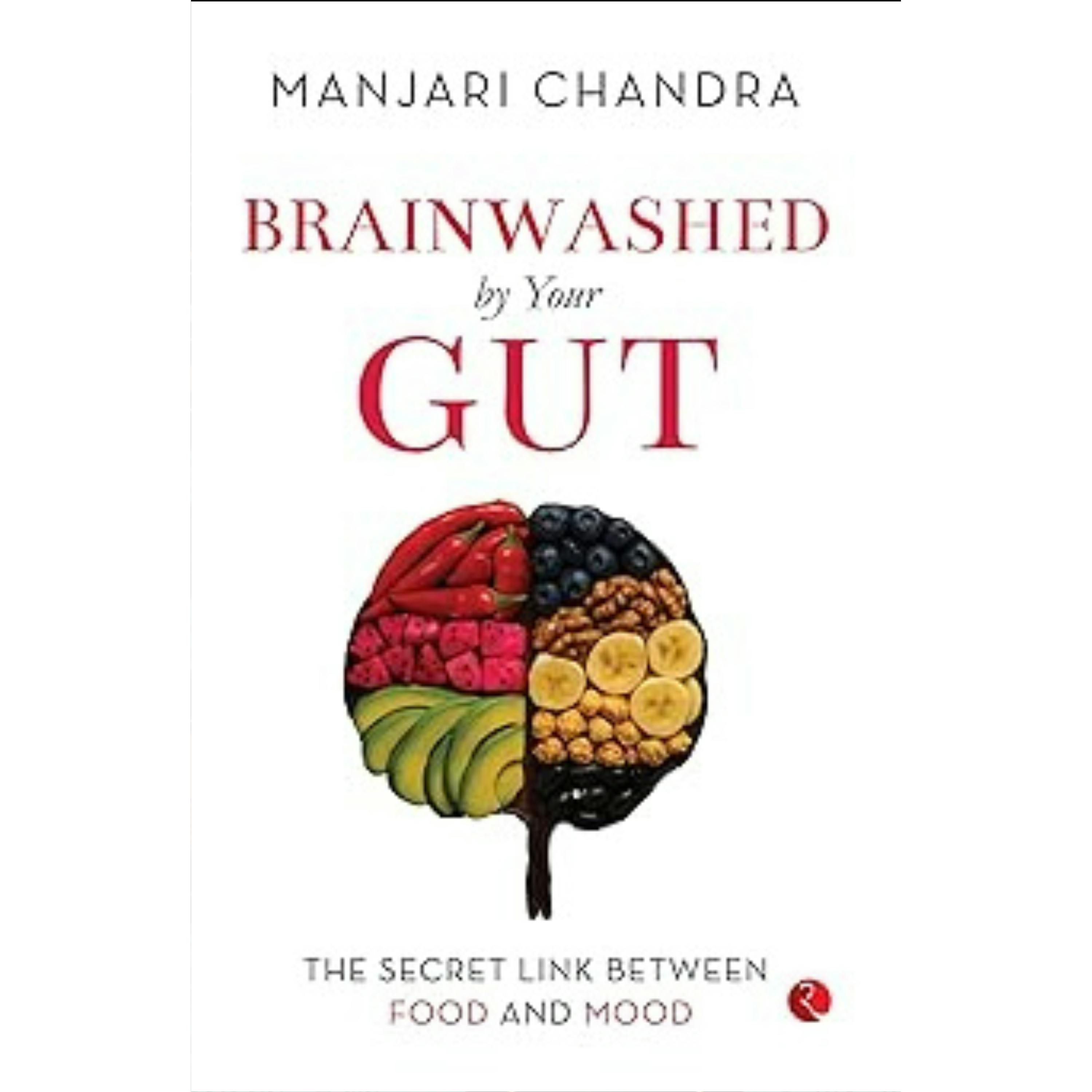
"Our food has completely changed in the last 30 years. This has totally changed our gut physiology, our gut microbiome, and has caused silent inflammation in the gut. Issues like reflux and bloating are caused by a gut that isn't functioning well. Also, if you don't eat the right type of food, your body is incapable of making the neurological chemicals called neurotransmitters that are required for stable mental health. That correlation is not discussed in modern medicine though it is the cause, many times, of these mental health issues. Adding a drug is just symptomatically managing it. Instead of just...
The original mother of many tongues
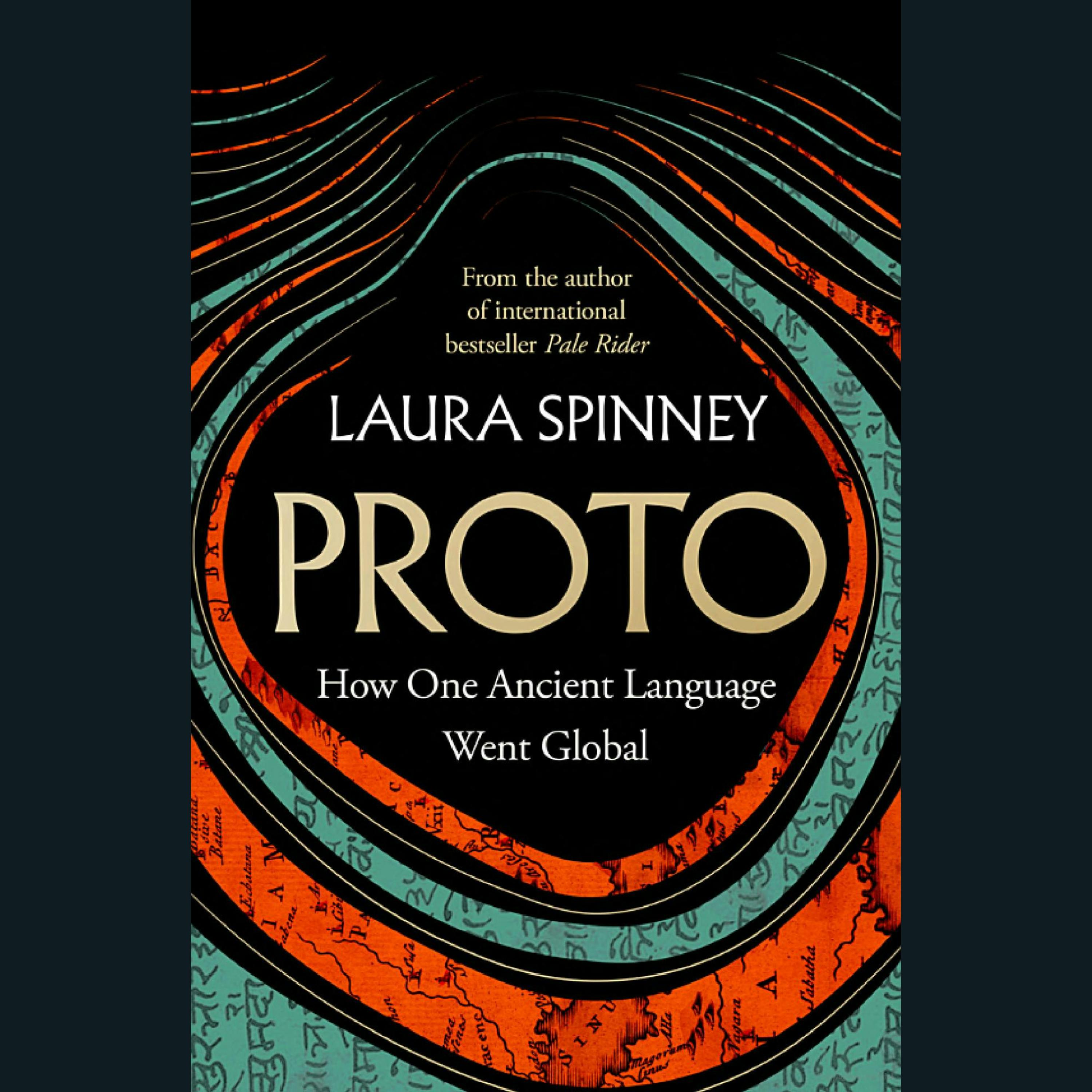
"One thing that's become abundantly clear from the ancient DNA revolution of the last 10 years is how important migration has been in the history of our species. So, of course, there has been hybridisation, cultural, genetic, linguistic. There is no such thing as a pure people, pure culture, pure language. Genes, culture and language do not map neatly onto each other. This book was a huge amount of work because the only way you can tell the story of Proto Indo European [the ancestor of Latin and Sanskrit and their daughter languages including English, German, Hindi, Bengali, Punjabi and many...
Of raab, kadhi and more
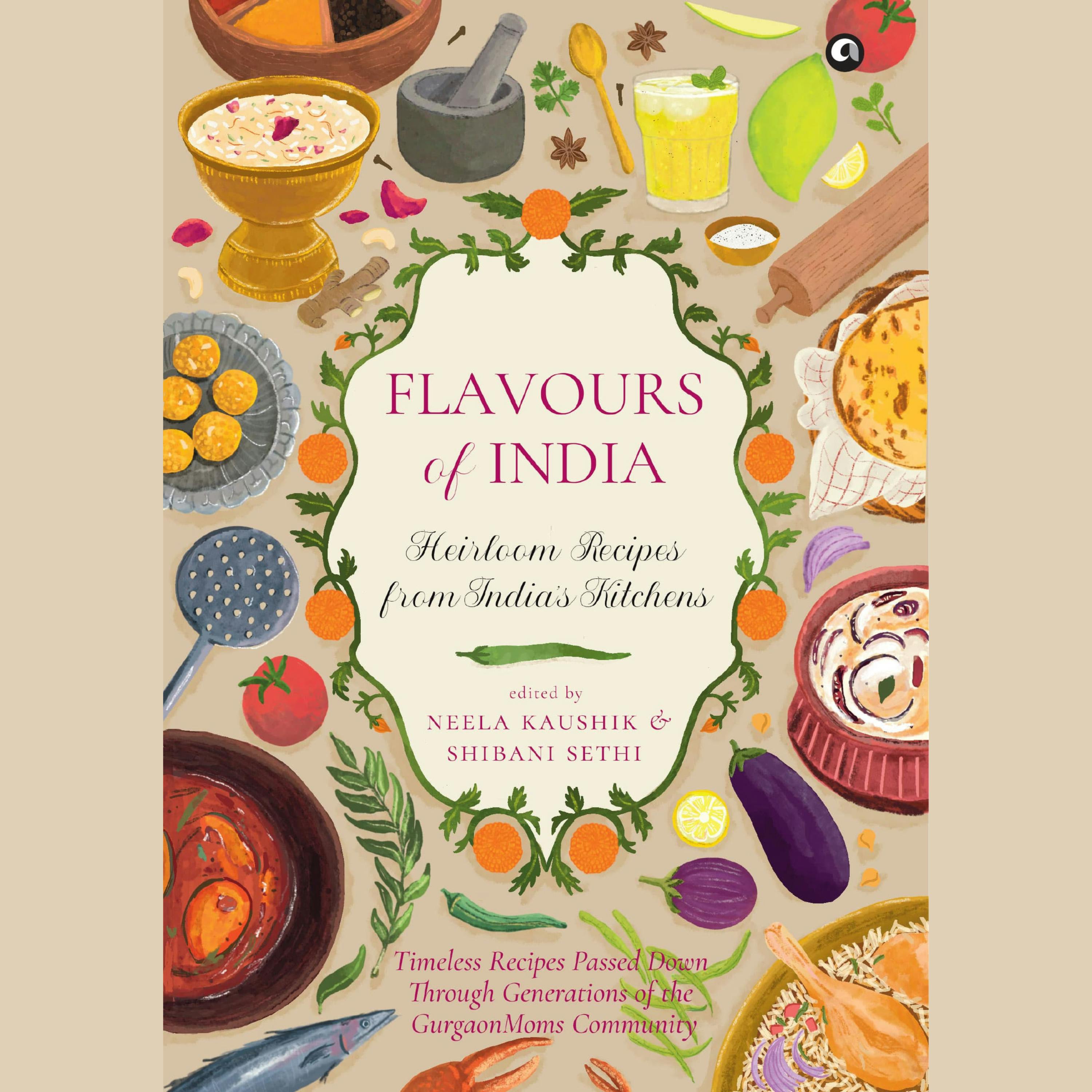
"Food is not just for nutrition but also for the soul" - @neelakaushik and Shibani Sethi, editors, 'Flavours of India talk to @utterflea abt the 40k strong Gurgaon Moms community that's contributed the family memories and recipes in this book
Learn more about your ad choices. Visit megaphone.fm/adchoices
Of unforgettable soundtracks and an emotional core
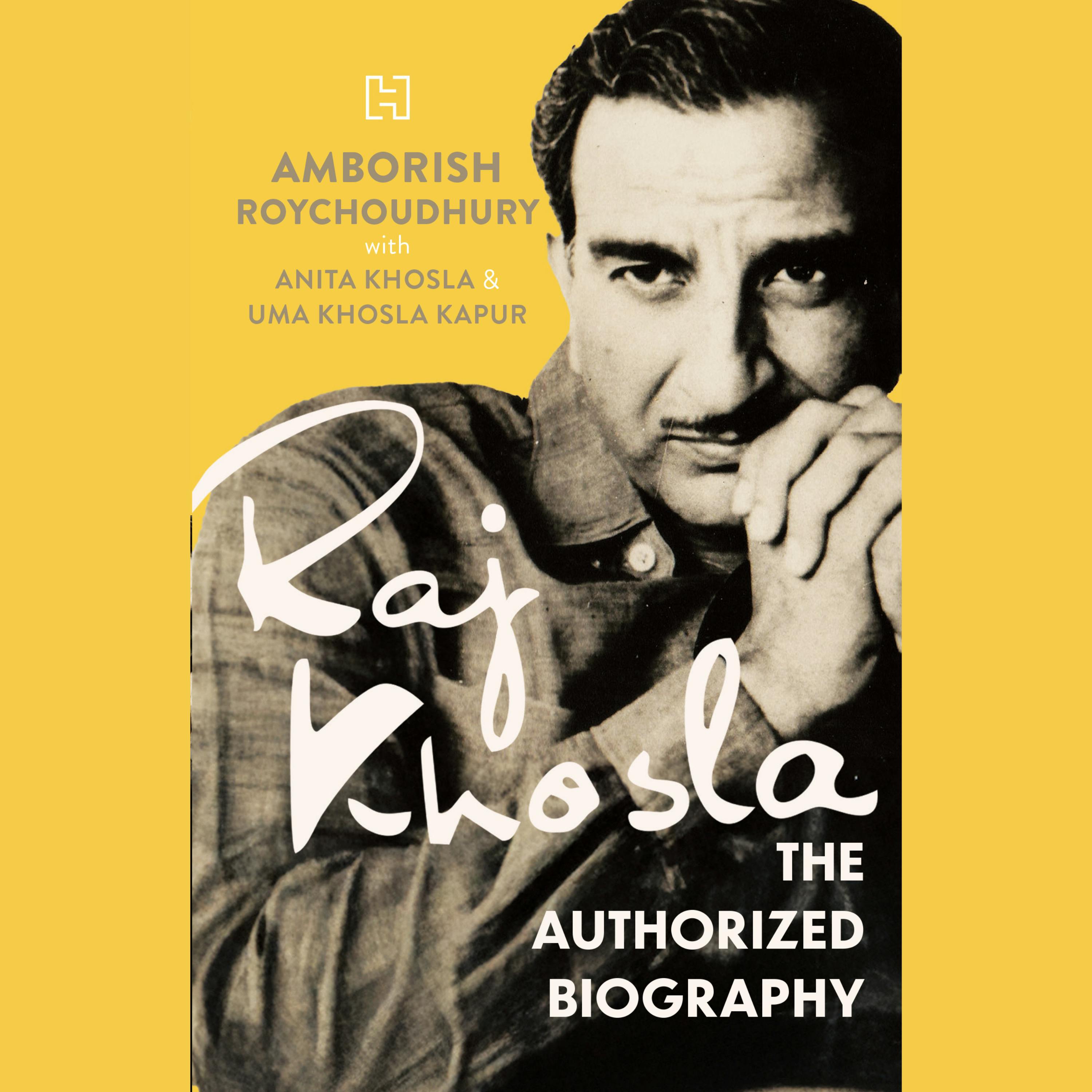
"In Raj Khosla's films, songs were storytelling devices. They didn't just push the narrative forward; they were also narratives by themselves. They had a beginning, a middle and an end, and the way they were shot, the way relationships were portrayed, and the way situations were brought in... It is an art that Guru Dutt taught Raj Khosla and which he then brought out in a way that really connected with the crowd." - Amborish Roychoudhury, author, 'Raj Khosla; The Authorized Biography' talks to Manjula Narayan about the life and art of the maker of such commercially successful and va...
Greed, greenwashing, and the perils of convenience
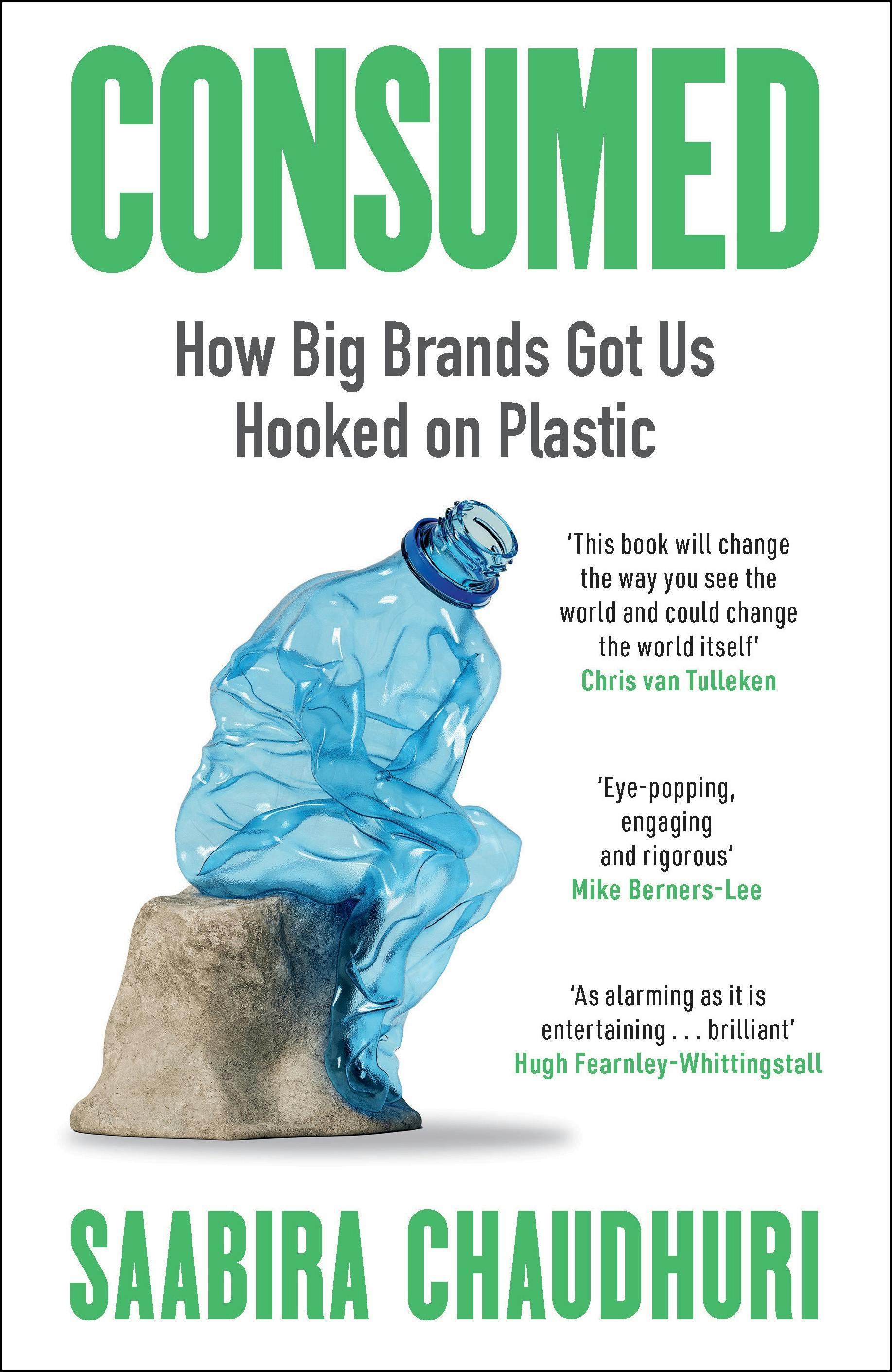
"All materials come with an environmental impact but plastics are worth singling out as they have turbocharged our desire to consume and our reliance on disposability. Consumer goods companies are the ones we should be looking at. They make decisions about what we see on supermarket shelves, what we see in our homes. I hope this book makes people feel that we do have the power to change things because these companies want us to like them. They are very sensitive to how their reputations play out among consumers. Scientists have been sharing concerns that endocrine disrupting chemicals found in...
Remembering not to forget
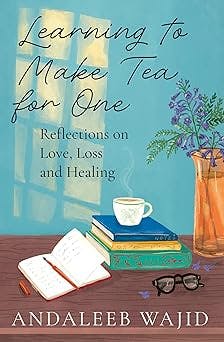
"I'd never attempted a memoir. For me, writing something so personal and putting it out there for the world to see was difficult because I was reliving those days. But that's when I realised, I don't want to forget those days. A lot of people want to move past grief. You want things to be normal. But there is no normal after this. This is the new normal and I have to learn to live with it. My husband and my mother in law became statistics of the COVID wave but they were so much more. Like love, grief i...
Of trances, theta states, and shamans
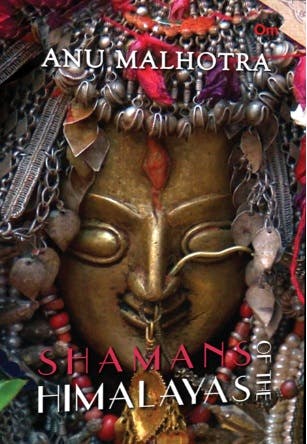
"Every part of India has shamans; you could say its part of folk culture. They call Himachal Dev Bhoomi because every village is home to several deities. Every village also has its main deity and a shaman, who is the medium of that deity. He can communicate with that deity when he goes into a divine possession trance that is ritually invoked. The villagers communicate with their devis and devtas for everything and in pooch sessions, the shaman or goor will answer questions as the deity. To a westernised mindset, this sounds like superstition. But you cannot ignore the...
